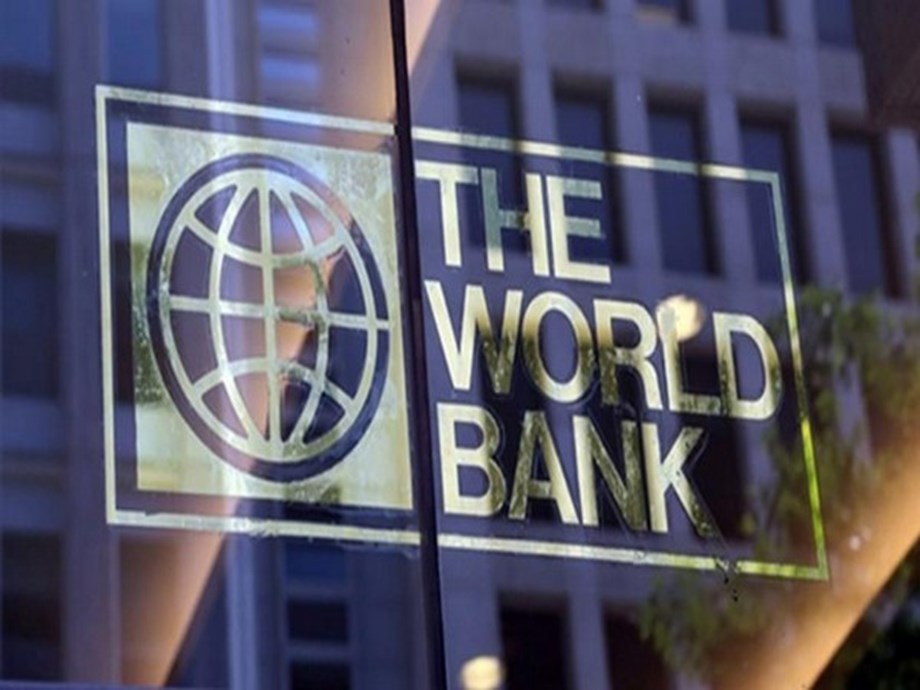
From AMC to Apple and Netflix to Disney: How Much Are Media Companies Worth?
The key question in the era of media consolidation is: Who can buy who? With the economy headed toward a possible/probable recession, the circles on our above data visualization bubble chart are a bit smaller than they would have been in even the recent past. Netflix’s bubble, for example, would be nearly four times as large seven months ago.
But it’s all relative, and these billion-dollar to multi-trillion-dollar publicly traded corporations are relatively large despite our first few not meeting the $13.1 billion market cap threshold to be considered for the S&P 500. (Not a requirement for our list, just a notable Wall Street valuation cutoff.)
Without much further ado, let’s learn a bit more about the major media players, from smallest to largest.
Note: We curated this list to be one that would most appeal and apply to readers within the entertainment industry. We did not include Charter Communications (market cap: nearly $85 billion) as it is not a brand with significant entertainment products. Similarly, we left AT&T (market cap: nearly $139 billion) off as it only now really impacts Hollywood post-WarnerMedia spinoff as a cable provider.
AMC Networks
Market Cap: $1.21 billion
Our least valuable company — in this specific compilation, at least. Had we included others — like IMAX, for example — AMC Networks would not be the smallest. Not to be confused with AMC Entertainment, the largest movie theater chain in the U.S., AMC Networks is the home to linear channels AMC, BBC America, IFC, SundanceTV, WE tv, and IFC Films, and niche subscription-streaming services AMC+, Acorn TV, Shudder, Sundance Now, ALLBLK, and the anime-focused HIDIVE (as well as being home to AMC Studios).
AMC Networks is experiencing a real moment of transition. “Mad Men,” “Breaking Bad, and “Killing Eve” are behind us; “Better Call Saul” and O.G. “The Walking Dead” are about to be. (Anne Rice, you’re up.) At barely north of a billion bucks, AMC Networks could be gobbled up by basically anyone on this list. But would anyone want an aging bundle of cable channels and some relatively tiny, ad-free streaming services? The answer is a resounding “maybe.” The better question is, Who? That one is a little more complicated; perhaps Amazon checks its sofa cushions and treats AMC as a write-off.

“Outlander” Season 6 on Starz.
Robert Wilson
Lionsgate
Market Cap: $2.05 billion
Lionsgate plans to unlock billions in value by spinning off at least a portion of Starz, a deal that executives plan to announce by the end of this summer and one they hope to close within the first few months of 2023. Of note: While market cap (the total value of a company’s outstanding shares) is the most common shortcut to assess a company’s value, there are alternative methods.
Enterprise value (market cap + available cash + debt; what it would cost to acquire the company) can often paint a rosier picture. In the case of Lionsgate, the addition of cash and debt places a valuation north of $5 billion. Considering Lionsgate bought Starz for $4.4 billion back in 2014, there is no version of sale here that spins a profit.
AMC Entertainment
Market Cap: $6.48 billion
This is the more-valuable AMC and the more volatile one thanks to its meme-stock status. Often referred to as AMC Theatres, the exhibition company has had a hell of a few weeks with “Top Gun: Maverick” and “Jurassic World Dominion” delivering big box-office receipts. How did the stock respond? By dropping 13 percent since the May 27 release of “Maverick.” It’s further indication that its stock price is not driven by fundamentals but by enterprising Redditors.
AMC and its competition were crushed by the pandemic and are now almost entirely reliant on blockbusters — and the snacks and sodas that follow. move. Fortunately, there are a few more of those coming this year, including the sequel to “Avatar.”

Roku’s “Swimming With Sharks”
Roku Channel
Roku
Market Cap: $11.21 billion
We’ve made it into the double digits! Roku has semi-successfully pivoted from merely manufacturing hardware to enter the streaming universe to offering streaming options of its own. It’s probably time to either lean into that pivot even harder or perhaps pull back. Thus far, on-demand and FAST seems to be working from a usage point of view; the jury is still out on the originals play. Like many companies on this list, the hurting economy isn’t helping Roku shareholders: ROKU was trading six times higher at its peak last July than it is today.
That could make it a borderline steal from an M&A perspective. If you believe the report-fueled rumors, Roku could get snatched up by Netflix — or, the device maker could serve as consultant of sorts to Netflix co-CEOs Reed Hastings and Ted Sarandos. It’s one thing to ask yourself if Netflix could buy Roku; quite another wonder if it should.
Paramount Global
Market Cap: $16.05 billion
Paramount Global is one stock rally (or perhaps one “Maverick” sequel) away from moving up a spot on our list. With a mega-merger, it could be a major player among the major players. The former ViacomCBS has a perse portfolio from broadcast (CBS) and cable, to AVOD/SVOD (Paramount+), and FAST (Pluto) to Paramount Pictures. Had Viacom and CBS not recombined in 2019, the separate companies would have ranked way lower on our list.
Students of the game believe the most logical option for Paramount could mean being scooped up by NBCUniversal parent company Comcast. And with a market cap more than 10x Paramount’s, Comcast could afford it! That highly theoretical merger also carries the weight of two broadcast networks — a major Federal Communications Commission no-no.

Saints vs. Panthers on Fox Sports
Copyright 2022 The Associated Press. All rights reserved.
Fox
Market Cap: $17.28 billion
For now Fox is still bigger than Paramount. (Take a moment to let that reality sink in if needed.) Fox sold most of its entertainment assets to Disney in 2019 for a whopping $71.3 billion, but what remains is still going strong. Lean can be mean.
These days, Fox is almost completely reliant upon news and live sports for success, as well as the advertising revenue that comes from its free streaming service Tubi. A pretty limited list, sure, but the combination appears to be a recipe that’s working. Fox seems intent on staying the course, either by design or by the decisions of others since getting into bed with the Murdochs and their conservative Fox News would not be a popular move in liberal Hollywood. Rupert, Lachlan, and James should be more concerned with losing sports rights, like they did when Amazon swooped in on “Thursday Night Football.”
Warner Bros. Discovery
Market Cap: $34.51 billion
WarnerMedia and Discovery, Inc. came together in April. So far, not so good — especially for those who (very briefly) worked at CNN+. The main news coming out of David Zaslav’s expanded corner office seems to mostly be about layoffs at this point.
The future of Warner Bros. Discovery will be played out on cable, on streaming, and in theaters. Where Turner factors into those plans, and how HBO Max and Discovery+ will look together, remains to be seen. There’s still quite a bit of work to be done here, but at least AT&T (and definitely AOL) is out of the way. These days, Warner Bros. is mostly just trying to win over theater owners again. While executives would never publicly declare their merger and acquisitions activity to be over and done with, it is unlikely Warner Bros. Discovery would add billions more to their current debt. Let CFO Gunnar Wiedenfels locate those $3 billion in synergies first, at least.

Chrisell Stause in Netflix’s “Selling Sunset” Reunion Special.
Courtesy Of Netflix © 2022
Netflix
Market Cap: $77.97 billion
Just a few months ago, Netflix would have been far higher on this list with a market cap north of $150 billion. And it was twice those heights in the fall.
Perhaps you’ve heard about the disastrous first quarter 2022 for the once-seemingly untouchable streamer. A loss of 200,000 global paid subscribers (for a company with about 222 million of them) set off a chain reaction of downgrades and panicked selloffs, since they also came with a warning that the current second-quarter’s losses were expected to be 10 times worse. To help right the ship, Netflix plans to add an advertising tier and expand its crackdown on password sharing. Those alone will not be enough, however, and the AVOD option will bring great costs, risky cannibalization, and lower ARPU (average revenue per user) in rich nations.
The greatest question about ad-supported Netflix right now is not, Will it save the company. Rather, it’s How (and When) will they get the infrastructure in place? Building one, licensing one, and/or acquiring one are all pricey ventures. It takes money to make money, but Netflix has (and makes) a hell of a lot less money than it did just a few months ago.
Sony
Market Cap: $106.98 billion
The triple digits! The enormous success of (its half of) “Spider-Man: No Way Home” is only one small part of the story; the studio side of Sony is just a piece of a much more robust corporation, something that applies to all of our $100 billion media companies. The lone foreign-based corporation on our list is also the only studio without its own streaming option (like Starz) or full direct-to-consumer service (like all the others). Sony considered it with Crackle, but unloaded that one rather unceremoniously to Chicken Soup for the Soul Entertainment, which is also now (equally weirdly) the owner of DVD-rental vending machine Redbox. Sony is happy to be an arms dealer to other services, like Netflix.
Sony Pictures revenue passed Sony Music in the last fiscal year, but the segment is still smaller than the Japanese giant’s non-gaming electronics business and its financial services business (for real), and is less than half the size of Sony’s Game & Network Services segment, which houses PlayStation.

Walt Disney Animation Studios’ “Encanto”
DISNEY
Disney
Market Cap: $171.84 billion
While $170 billion is not Mickey Mouse money, it’s not quite enough to make the Top 3. Still, Disney is going for gold in the ongoing streaming wars, with a major content spend and giant subscriber goal. To get there, The Walt Disney Company is introducing an ad-supported option and pulling some Marvel stuff off Hulu, which it also controls, in favor of Disney+.
What it won’t have any longer is IPL cricket — not on streaming, at least. It also lacks big box office Buzz from “Lightyear,” which is currently grounded in comparison to other Pixar blockbusters. The “Toy Story” prequel (of sorts) should save face a bit on Disney+, whenever that day comes (probably no less than 45 days from its June 17 release date). Though Disney is feeling a bit vulnerable at the moment, it still has a leg — and nearly $100 billion in valuation — up on rival Netflix.
Comcast
Market Cap: $173.42 billion
Today, the cable operator has the edge in market cap; tomorrow, it could be Disney’s turn. Comcast and Disney, both home to numerous theme parks in addition to their respective entertainment assets, have swapped spots based on the day lately. Today, NBCUniversal and Universal Pictures parent Comcast is worth nearly 11 Paramounts, if anyone there is reading.
Though Covid ruined Comcast’s Peacock rollout, absorbing the Paramount+ library and subscriber base could be exactly what the doctor ordered to stay in lockstep with whatever HBO Max/Discovery+ gets named. While Peacock is still in its peachick stages (yes, that’s what baby peacocks are really called), Paramount Global expects to have 100 million streaming subscribers between Paramount+ and Showtime OTT by the end of 2024. That’s roughly the same tally as Discovery+ and HBO/HBO Max.

Amazon Prime Video’s “Reacher”
Keri Anderson/Amazon Prime Video
Amazon
Market Cap: $1.08 trillion
Our first trillion-dollar company on the list can thank diaper sales for its status more than “Reacher” viewing. (Though we like “Reacher” as much as we like free two-day shipping.) There are hundreds of millions of Amazon Prime customers, but it’s difficult to say how many people primarily signed up for the Amazon Prime Video component vs. seeing the SVOD service as a bonus component. (Amazon also has a free FAST streaming service, FreeVee, fka IMDb TV.)
Amazon recently underwent another stock split. That doesn’t impact overall valuation, but it opens access to a far broader range of investors.
Apple
Market Cap: $2.13 trillion
Even if we included Alphabet (fka Google) on this list for the YouTube of it all, iPhones would have powered Apple past anything. Apple TV+ itself is fairly immaterial to a company of this size. We don’t have much information on the number of Apple TV+ subscribers beyond a snapshot revealed as part of a union contract dispute this past fall, in which Apple stated it had fewer than 20 million subscribers in the U.S. and Canada as of July 2021.
Of course, that was before “Ted Lasso” Season 2 and way before “Coda” took home the Best Picture Oscar. Tim Cook’s company will be OK. Again, refer to that $2 trillion thing.



























































